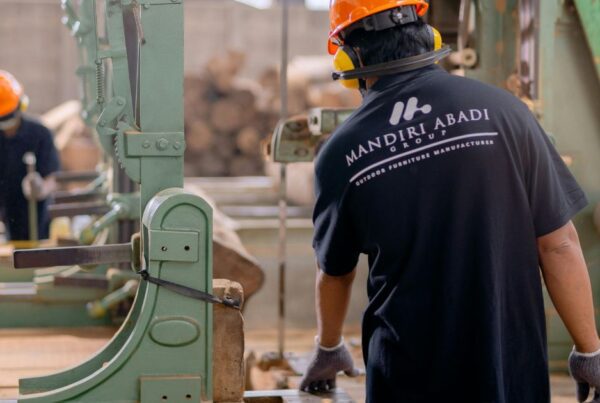 It starts off well. You and a partner (or two) decide to invest in property, maybe a rental, a flip, or your first multifamily building. Everyone’s on the same page, everyone’s excited, and no one wants to “complicate things” by bringing in lawyers.
It starts off well. You and a partner (or two) decide to invest in property, maybe a rental, a flip, or your first multifamily building. Everyone’s on the same page, everyone’s excited, and no one wants to “complicate things” by bringing in lawyers.
Until something goes wrong.
Co-owning property in Florida without a clear agreement is one of the most common ways investors end up in court. Whether the disagreement is over money, management, or exit plans, the disputes that arise without a written agreement can be costly and messy, and often preventable.
In this blog post, we’ll explain the crucial legal document every property partnership should have, why skipping it is a mistake, and how to protect your investment from future conflicts.
What Is a Co-Ownership Agreement and Why Do You Need One?
A co-ownership agreement defines how the property will be owned, operated, managed, and, when the time comes, sold or divided.
Key Issues a Co-Ownership Agreement Should Cover:
- Ownership Shares: Who owns what percentage?
- Capital Contributions: How much money is each partner putting in up front?
- Ongoing Expenses: Who pays for what? How are repairs, taxes, and insurance handled?
- Management and Control: Who handles decisions like choosing tenants, hiring vendors, or listing the property for sale?
- Dispute Resolution: What happens if the partners don’t agree?
- Exit Strategy: What if one person wants to sell, but the others don’t?
What Happens If You Don’t Have a Property Partnership Agreement?
Without a written agreement, disputes are governed by default Florida law. That might sound okay, until you realize:
- Florida law may force the sale of the property through partition. If one owner wants out and the others don’t agree, they can file a partition lawsuit, and the court can order the property sold, even if it’s not the right time.
- You have no written evidence of what was agreed. If a disagreement arises about ownership percentages, who paid what, or who was supposed to manage the property, it becomes a matter of “he said, she said.”
- Litigation can be expensive and time-consuming. Co-ownership disputes can drag on for months or even years, costing far more than the price of a proper agreement would have at the outset.
At Ayala Law, our attorneys have represented multiple clients in co-ownership and real estate partnership disputes. And while we fight hard for our clients, we always say this: it’s easier, and cheaper, to prevent these issues than to fix them later in court.
Common Disputes Between Property Co-Owners
Here are some real-world issues we see all the time:
1. Unequal Investment, Equal Ownership Disputes
One partner puts in 80% of the funds but only has 50% ownership. Without clear terms, resentment and legal issues follow.
2. One Partner Wants Out
If there’s no agreement on how to exit, the only option may be filing a partition action in court, which often results in a forced sale.
3. Property Use and Rental Income
One partner wants to Airbnb the property; the other wants long-term tenants. Or one partner lives in the property while the other receives no rent. These issues create legal and financial tension fast.
4. Unexpected Costs
A new roof is needed, or a tenant damages the unit. Who pays? And what happens if one partner can’t, or won’t, contribute?
Does a Verbal Agreement Between Property Co-Owners Hold Up in Court?
Technically, yes, sometimes. But practically, no. Verbal agreements are extremely hard to prove and enforce. If you end up in court, the outcome may depend on what the judge believes actually happened, which is rarely a position you want to be in, especially when real estate and large sums of money are involved.
When Should You Create a Property Co-Ownership Agreement?
Before you close. Ideally, the agreement should be in place before you purchase the property. But if you’ve already closed, it’s not too late. A properly drafted agreement can still be created post-closing to avoid future issues.
In either case, it’s best to work with a law firm experienced in real estate partnerships and litigation so you get a document that fits your exact situation—and will hold up if ever challenged.
Can We Just Use a Template or Do We Need a Lawyer?
Templates may be a start, but they usually:
- Don’t reflect Florida law specifically
- Miss key issues specific to your deal
- Aren’t tailored to your goals or property
- Don’t hold up well in court if challenged
A tailored agreement drafted by an attorney is an investment in protecting your investment.
Final Thoughts: Get the Agreement Now, Avoid Court Later
Co-owning property can be a smart move when done right. But without a clear, written agreement, you’re exposed to costly legal disputes that can destroy the investment, and the relationship, that you worked so hard to build.
At Ayala Law, we regularly assist Florida property owners in drafting and enforcing co-ownership agreements, resolving partner disputes, and, when necessary, litigating partition actions. We know where these partnerships go wrong, and we help clients structure them the right way from the start.
Thinking of buying property with a partner? Already co-owning real estate without an agreement? Contact an experienced attorney in Miami at 305-570-2208.
You can also contact trial attorney Eduardo A. Maura at eduardo@ayalalawpa.com.
Schedule a case evaluation online here.
[The opinions in this blog are not intended to be legal advice. You should consult with an attorney about the particulars of your case].
Subscribe to Our Blog
Stay informed with our latest blog posts delivered directly to your inbox. Gain valuable legal insights, tips, and advice from our seasoned attorneys.







